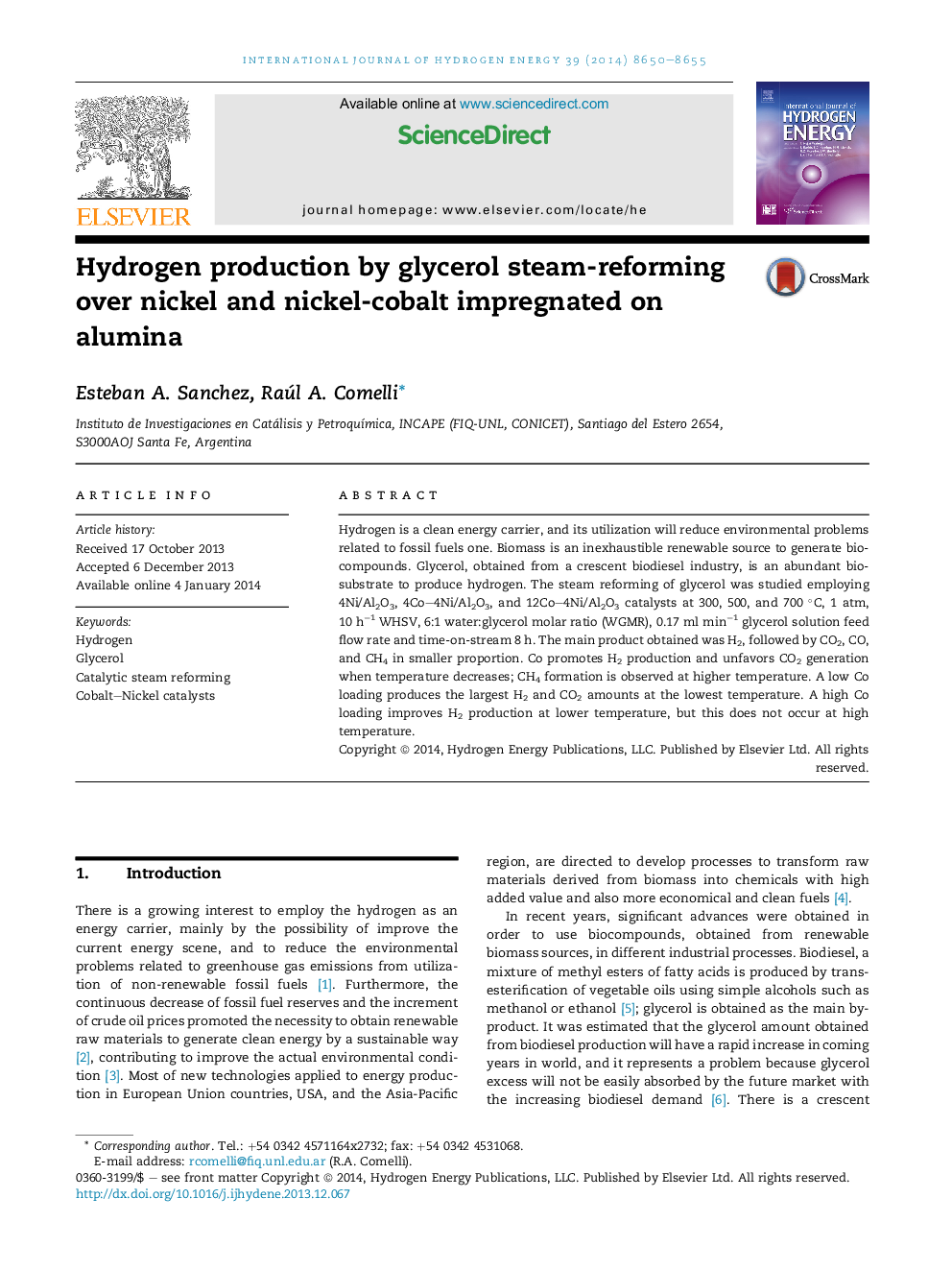| Article ID | Journal | Published Year | Pages | File Type |
|---|---|---|---|---|
| 7719399 | International Journal of Hydrogen Energy | 2014 | 6 Pages |
Abstract
Hydrogen is a clean energy carrier, and its utilization will reduce environmental problems related to fossil fuels one. Biomass is an inexhaustible renewable source to generate biocompounds. Glycerol, obtained from a crescent biodiesel industry, is an abundant bio-substrate to produce hydrogen. The steam reforming of glycerol was studied employing 4Ni/Al2O3, 4Co-4Ni/Al2O3, and 12Co-4Ni/Al2O3 catalysts at 300, 500, and 700 °C, 1 atm, 10 hâ1 WHSV, 6:1 water:glycerol molar ratio (WGMR), 0.17 ml minâ1 glycerol solution feed flow rate and time-on-stream 8 h. The main product obtained was H2, followed by CO2, CO, and CH4 in smaller proportion. Co promotes H2 production and unfavors CO2 generation when temperature decreases; CH4 formation is observed at higher temperature. A low Co loading produces the largest H2 and CO2 amounts at the lowest temperature. A high Co loading improves H2 production at lower temperature, but this does not occur at high temperature.
Related Topics
Physical Sciences and Engineering
Chemistry
Electrochemistry
Authors
Esteban A. Sanchez, Raúl A. Comelli,
